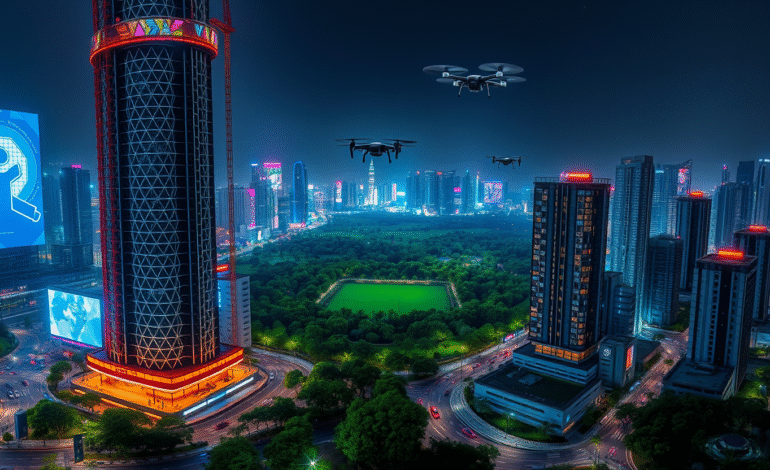Exploring the Future of Urban Development: Shah Muhammad Discusses AI’s Role in Shaping Cities with Sweco.

In the realm of urban development and infrastructure planning, the integration of artificial intelligence (AI) is transforming the way cities are built and managed. Shah Muhammad, Head of AI Innovation at Sweco, provides insights into this burgeoning field.
The quest for more efficient, sustainable, and resilient urban environments has led to the utilization of AI as a catalyst for optimized processes, enhanced decision-making, and improved sustainability outcomes. By analyzing vast amounts of data and simulating various scenarios, AI allows city planners to design cities that cater to the needs of their inhabitants more effectively, addressing challenges such as traffic congestion and pollution.
When designing future cities, AI offers the ability to ask and answer questions that significantly impact the quality of life for urban dwellers: “What is the most effective way to develop this neighborhood to minimize traffic jams and air pollution? How can we design a building that maintains temperature efficiency during extreme weather conditions without exorbitant electricity bills?” By evaluating numerous possibilities, AI helps guide city planners towards the best solutions.
However, the real world is complex and unpredictable. Adapting AI models to physical environments, with their inherent complexity and variability, poses significant challenges. “Ensuring that our models accurately represent real-world conditions and can adapt to changing circumstances is crucial,” Shah explains. To address this challenge, Sweco implements rigorous data governance practices, standardizes data formats, and uses interoperable software tools, ensuring consistency and trustworthiness in the information that AI learns from.
AI’s potential to impact sustainability is remarkable, as demonstrated by numerous projects aimed at preserving biodiversity, such as identifying endangered species and providing this information to researchers. In this way, technology serves as a voice for nature in urban planning processes, promoting the construction of cities that respect and protect the environment.
Looking ahead, Shah believes that the future of AI lies in predictive analytics and automation: “By anticipating future trends, identifying potential issues early, and automating routine tasks, AI can greatly enhance efficiency, reduce costs, and improve project quality.” This advancement could lead to safer infrastructure, less maintenance, and reduced disruptions in our daily lives. Ultimately, it means that skilled professionals can focus on creating cities that are more in tune with the needs and aspirations of their residents.






